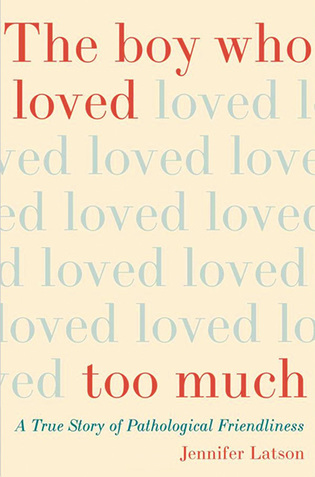 loading
loading
Arts & CultureReviews: November/December 2017Books on frat culture, childhood friends, and a disease that makes people friendly.  View full imageThe Boy Who Loved Too Much: A True Story of Pathological Friendliness Sue Halpern ’77 is author of Summer Hours at the Robbers Library, due out in February 2018. The first time journalist Jennifer Latson met 12-year-old Eli D’Angelo, the boy told her he loved her. Then he told her again. And again. Over the three years in which Latson chronicled the lives of Eli and his mother, Gayle, Eli told her this countless times, just as he told his mom, his teachers, his classmates, his bus drivers, waitresses, and anyone else who came in sight. Along with about 30,000 people in the United States, Eli has Williams syndrome, a condition caused by the absence of just 26 to 28 genes on one of their two copies of chromosome 7, a deletion so apparently minor that Latson calls it “a paper cut in the human genome.” While those with Williams may also be susceptible to gastrointestinal problems, cognitive impairments, and a life-threatening heart condition, the dominant feature of Williams is extreme friendliness and sociability. Paradoxically, this makes forming friendships difficult and fraught. When Gayle is asked by a researcher how many friends her son has, her answer is zero. For Gayle, Eli’s outsized affability and, especially, his tendency to hug people indiscriminately, is a source of anxiety: will her son be exploited or bullied? Will he do something inappropriate that could get him in trouble with the law? Latson brings the reader into Gayle and Eli’s world with both intimacy and respect, offering a beautiful and unsentimental portrait of what it is like to raise a child with Eli’s challenges, and what it is like to be that child. The 26 or so missing genes that define Williams syndrome have turned out to be a boon to researchers looking to understand the relationship between genetics and behavior, and Latson proves an engaging guide to their work. Scientists have found, for instance, that the absence of a single gene, GTF21, results in unregulated oxytocin production—and with oxytocin flooding their brains, people with Williams syndrome can’t help but love everyone they see. As Jennifer Latson so ably demonstrates, there are lessons here for all of us.
|
|